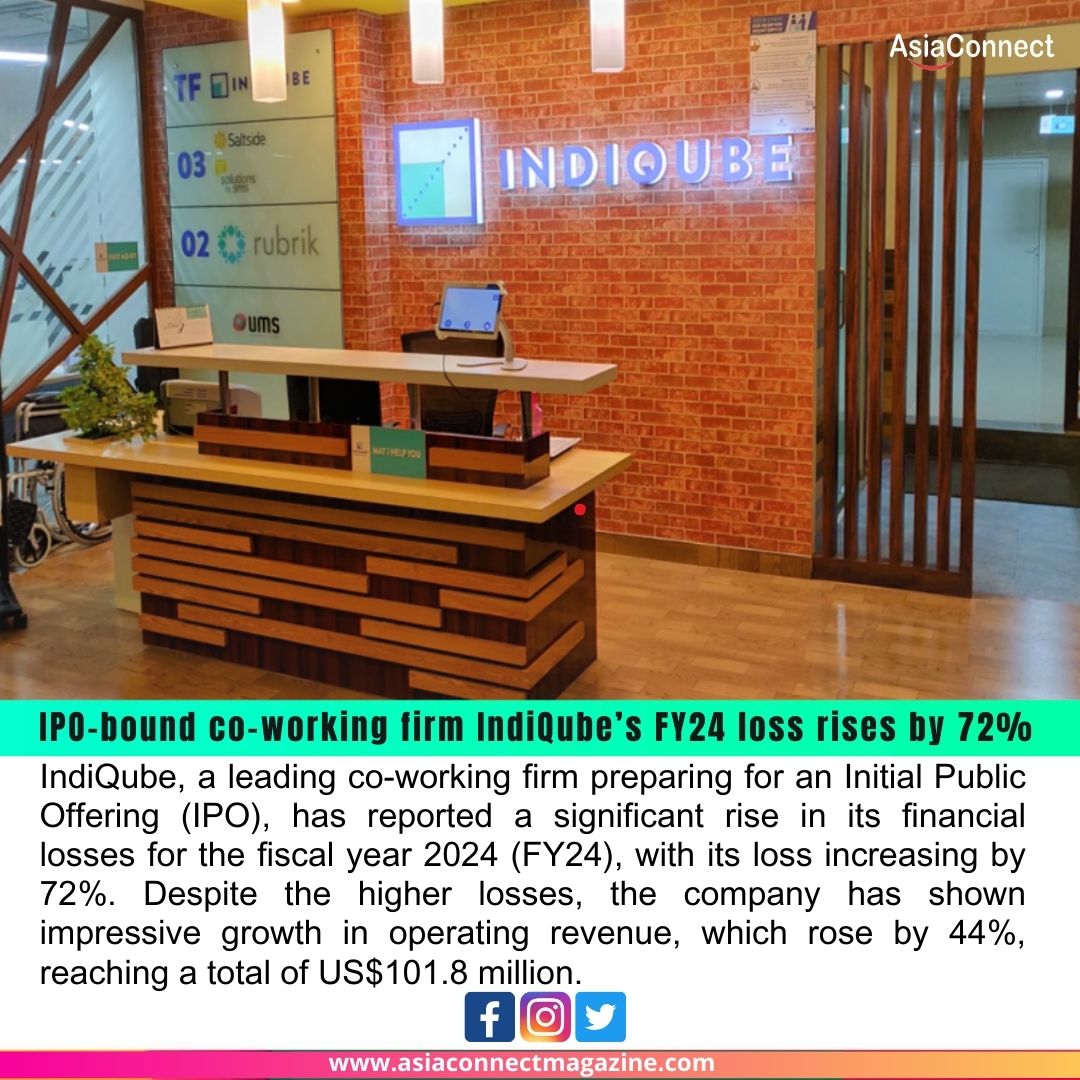IndiQube, an IPO-bound co-working space provider, has seen a significant increase in its financial losses during the fiscal year 2024, with losses rising by 72%. The company, which is gearing up for a potential public offering, reported a deepening of its financial challenges despite the growing demand for flexible office spaces. IndiQube’s FY24 losses totaled ₹126.5 crore, up from ₹73.5 crore in FY23. The rising losses indicate that, despite its strong market presence, the company has yet to achieve profitability.
Revenue Growth Amid Losses
While IndiQube’s losses have increased, the company has experienced a notable growth in its revenue streams. Revenue for FY24 grew by 38%, reaching ₹300 crore, compared to ₹217 crore in FY23. This growth can be attributed to the expansion of its co-working spaces and the rising demand for flexible office solutions, particularly in the post-pandemic environment where businesses are seeking more adaptable workspace options. The pandemic led many companies to reassess their office needs, and the hybrid work model has become increasingly popular, creating an opportunity for companies like IndiQube to capitalize on the shifting demand for flexible office spaces.
High Operating Costs
Despite revenue growth, IndiQube continues to struggle with high operating costs, which have contributed to its increased losses. The company’s business model, which requires significant upfront investments in real estate and infrastructure to set up co-working spaces, leads to high capital expenditures. These costs are then compounded by expenses related to leasing, maintenance, and managing multiple properties. IndiQube has been focusing on expanding its footprint by opening new centers in key cities, and these new spaces have not yet reached a level of occupancy that can offset the initial investment and operational costs. Moreover, rental agreements for co-working spaces are typically long-term, further tying up capital in assets that can take years to fully generate profits.
Focus on Expansion
To address the increasing losses, IndiQube has been aggressively pursuing an expansion strategy. The company has been adding new centers in major urban centers, including Mumbai, Bengaluru, and Delhi, where demand for flexible workspaces is high. IndiQube’s model is designed to cater to various industries, ranging from startups to large enterprises, looking for scalable office solutions. This expansion is essential for the company’s growth, but it also contributes to rising losses, as newer centers take time to mature and reach profitability.
IPO Plans and Market Sentiment
IndiQube’s rising losses come at a crucial time as the company prepares for an initial public offering (IPO). The co-working industry has seen growing investor interest, with other players in the sector also eyeing public listings. However, investors are likely to scrutinize IndiQube’s financials, especially given the increased losses. The ability to achieve profitability, or at least reduce losses, in the coming quarters will be critical in shaping market sentiment around the company’s IPO. In its prospectus, IndiQube has highlighted its plans to continue expanding its reach while improving its cost efficiencies. However, the path to profitability remains uncertain, and achieving a sustainable business model will be key to its long-term success.
Future Outlook
Looking ahead, IndiQube’s ability to navigate the challenges of increasing competition and rising operating costs will be a determining factor in its financial trajectory. The company needs to balance its growth ambitions with efficient management of its costs to eventually reduce losses and move towards profitability. With more businesses embracing hybrid work arrangements, the demand for flexible office spaces is expected to remain strong, providing IndiQube with significant opportunities to scale its operations. However, profitability will likely remain elusive for the near term as the company continues to expand and invest in infrastructure to meet market demands.





